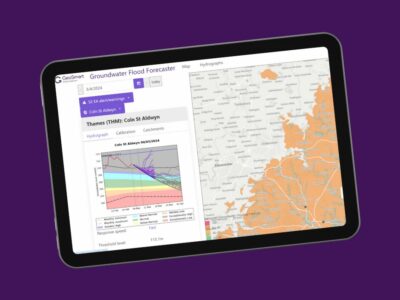The Consumer Duty and climate change risk to property
The new Financial Conduct Authority’s (FCA) Consumer Duty came into force on 31 July, 2023. The new regulations aim to improve how firms serve consumers and to increase the level of consumer protection in the retail financial services market.
When it was announced last year, the FCA said it would “set higher and clearer standards of consumer protection across financial services and require firms to put their customers’ needs first”.
The FCA says these new regulations should change how financial services are delivered and that firms will have to alter their governance mechanisms to comply with them.
What is Consumer Duty?
There are three pillars of Consumer Duty:
The Consumer Principle. This relates to the overarching standards of behaviour firms must deliver. It is a principle that requires businesses to “to act to deliver good outcomes for retail customers”.
A “good outcome” means that customers must be provided with products and services that both meet their needs and offer fair value. They must also receive communications in plain English that can be easily understood and are entitled to support when they need it.
Cross-cutting Rules. These are the key behaviours and demand that firms:
Avoid causing foreseeable harm to customers
Allow customers to pursue their financial objectives
Act in good faith.
The Four Outcomes. These relate to the key elements of the firm-consumer relationship that help to drive good outcomes for customers. The four outcomes relate to:
- Products and services
- Price and value
- Consumer understanding
- Consumer support.
Who it applies to
The financial products covered by the duty include retail mortgages (mortgages sold direct to consumers) and insurance policies and applies only to regulated firms – and not just those who have a direct relationship with a customer.
The Consumer Duty is a different approach from caveat emptor that some people still believe applies – even to life-changing financial product commitments.
While such commitments are never straightforward, the situation is now made more complex because of increased awareness of the risks to property posed by climate change that will only grow more relevant.
Many professional advisers now recognise that poor consumer outcomes can arise where climate change is not taken into account. We can expect this feature to become more important for the future, which means it needs to be factored into decisions that entail long-term commitments.
The Law Society has recognised this and confirmed that conveyancers have a duty of care and on April 19, 2023, published Guidance on the Impact of Climate Change on Solicitors. Solicitors and conveyancers therefore need to ensure that home buyers are made aware of the types of climate risks that will likely affect both the ‘quiet enjoyment’ and the future value of their house.
Gaps in provision of advice and information regarding climate risks
Non-regulated firms, such as property advisers – usually estate agents, valuers, conveyancers, surveyors – also have an important role in the consumer’s decision whether to purchase, mortgage or re-mortgage and insure a property, so this means there is a gap between the standards of relevant parties.
This raises some questions as to whether or not the consumer will have adequate information before making a house purchase decision, with long-term consequences and commitments.
Some risks, such as environmental and consequential valuation risks, are beyond the scope of the usual advice providers – and admittedly difficult to identify and quantify. There is no common regulatory process to ensure data quality. Instead, there are codes of practice that are generally maintained by industry self-regulation rather than by a regulator.
It therefore makes sense to understand how to manage these risks and to understand who is responsible for the advice given. In general, the best data and advice will come from a provider who is an expert in the subject matter.
What it means for GeoSmart Information clients
As the Consumer Duty raises the standards by which retail financial products are manufactured and distributed, we should expect similar upgrades from the advisers and data providers that prepare the ground for a house purchase – most people’s largest and longest-lasting financial commitment.
Geosmart Information is a highly regarded independent UK based flood risk adviser whose data have been used in millions of house-buying transactions over the years.
Our experts work with large organisations, utilities and with governmental bodies such as the UK Space Agency and are well placed to guide advisers, consumers and regulated firms as they improve their climate risk due diligence related to flood risk at property level.
FloodSmart Analytics, our new flood product, provides detailed risk analysis of individual properties and includes climate change scenarios, enabling users to make risk-based decisions that allow more information depending on the degree of concern – perhaps including a view on mitigation options.
As the Environment Agency, DEFRA and Flood Re have advised consumers to “Be Floodsmart”, Geosmart Information’s new FloodSmart Analytics is ideally placed to provide the necessary flood risk data.
To find out how FloodSmart Analytics can support you, get in touch.



